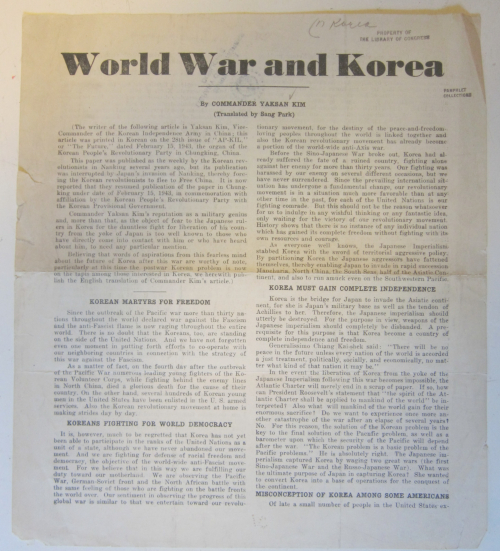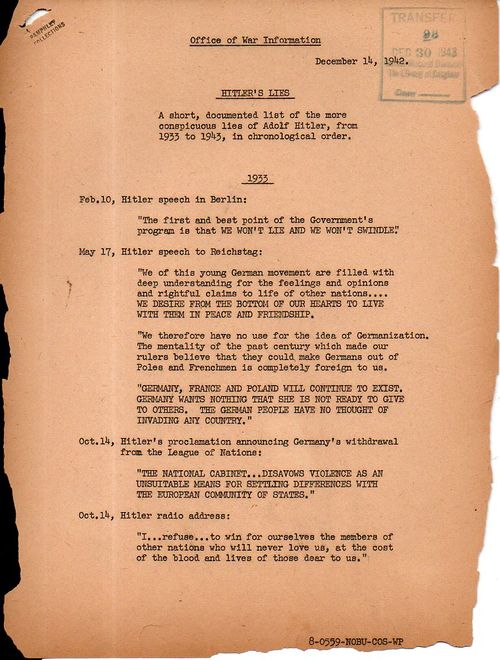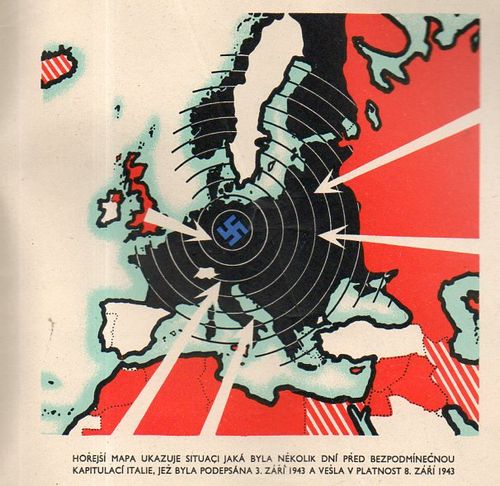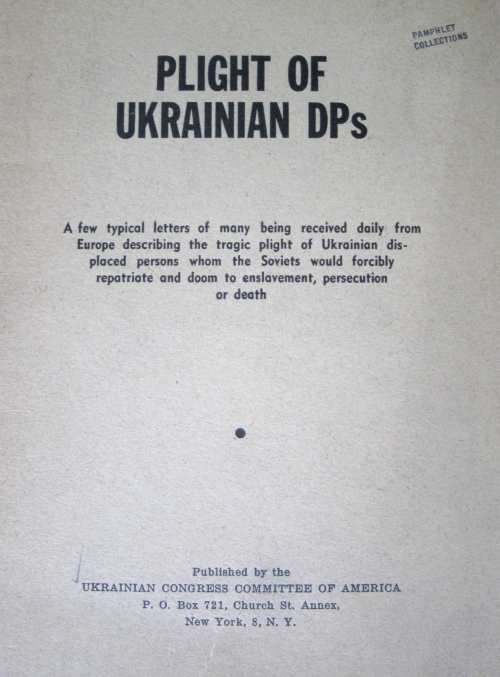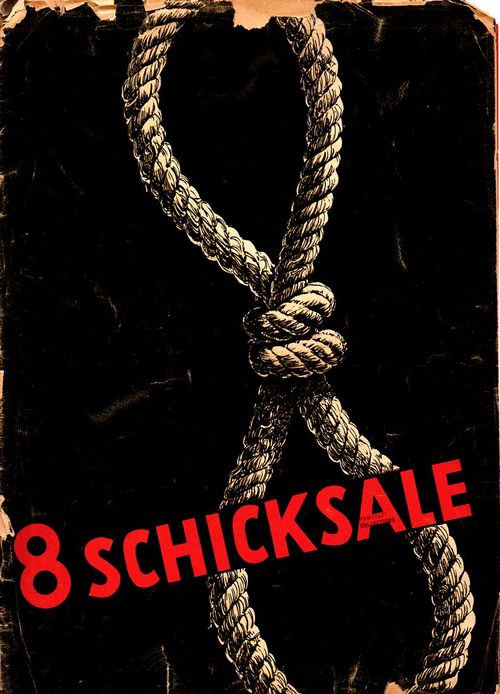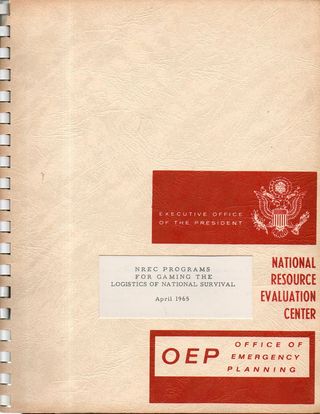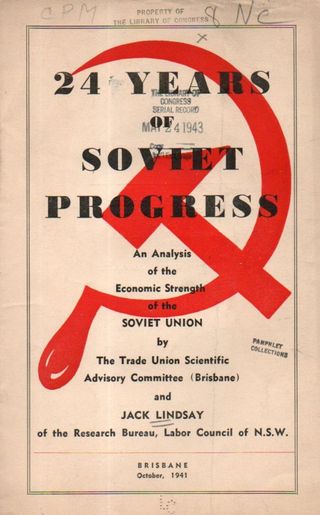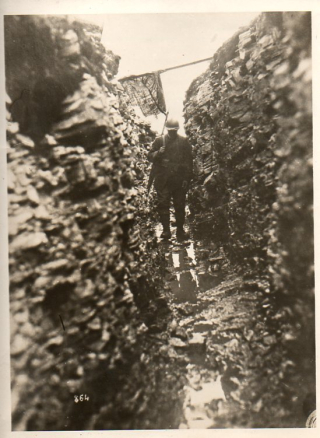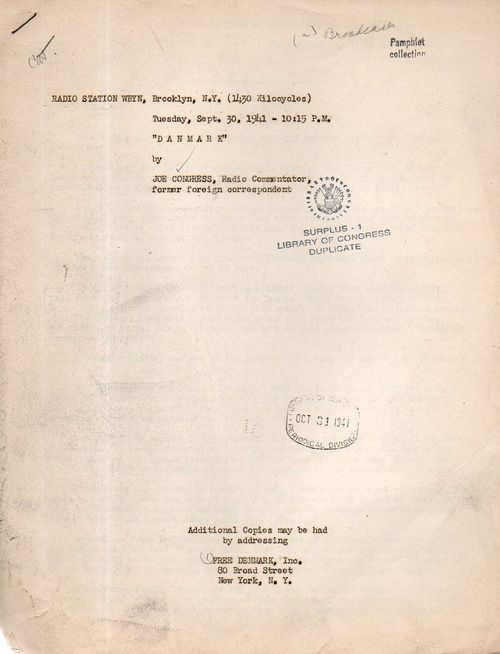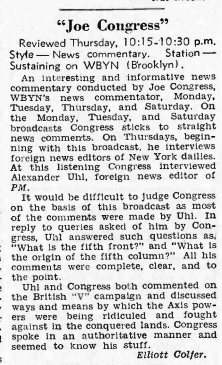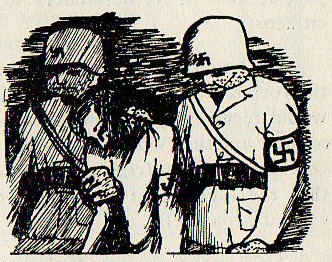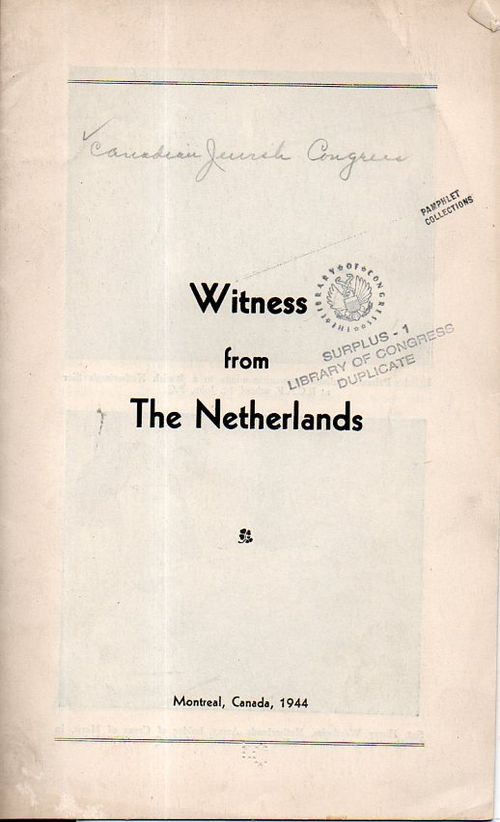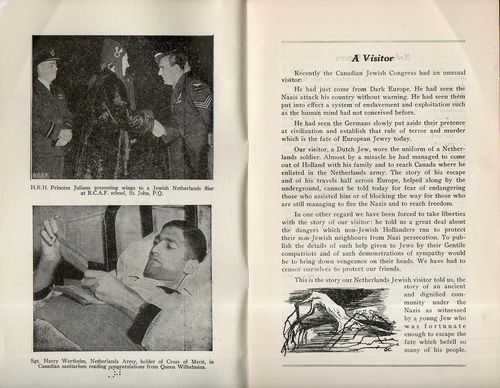Grave Folly of Pro-Czech Policy... published by the Militant Christian Patriots, September 1938. Rare. From the Pamphlet Collection of the Library of Congress. 10x8 inches. Old vertical fold. Very good copy. $175
Here's a slathering piece of propaganda published by the Militant Christian Patriots (of London) on how the British government was dealing with the Nazi/Seudeten problem in September 1938. In their gunsights was Anthony Eden, who was seen by this group as a Bolshevist supporter, and who as the Foreign Minister of the United Kingdom under Prime Minister Neville Chamberlain was against the appeasement policy of the government towards Nazi territorial acquisitions, particularly in this case with Czechoslovakia. Eden. identified here as "backed by the Zionists, Fabian_Scoailists and "pacifist" League of Nations enthusiasts" was a multiple threat, and seen to be capable of directing national policy towards a confrontation with Germany over the looming Czech problem.
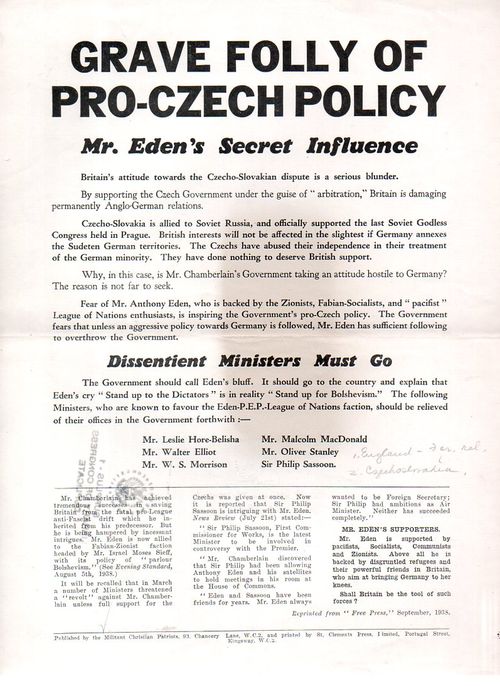
On the other hand, Neville Chamberlain, who was the Prime Minister of the United Kingdom at this time (and from May 1938-May 1940), was seen as a better ideological fit with his issues and policies of appeasement of the German nationalist needs and territorial rape. Chamberlain certainly gave what Christian Militants wanted--a free hand to Hitler in Czechoslovakia (and more), and perhaps an acknowledgement of defeat to the Nazi nation. Winston Churchill certainly thought so:
"We have suffered a total and unmitigated defeat... you will find that in a period of time which may be measured by years, but may be measured by months, Czechoslovakia will be engulfed in the Nazi régime. We are in the presence of a disaster of the first magnitude...we have sustained a defeat without a war, the consequences of which will travel far with us along our road...we have passed an awful milestone in our history, when the whole equilibrium of Europe has been deranged..." Winston Churchill, MP, 1938
The Christian Militants saw it all differently, tending to agree with Hitler on the Czech matter, and seeking to keep the U.K. out of confrontation and thus away from war by giving Hitler (and then Mussolini) what they demanded to satisfy their growing national needs.
"I am asking neither that Germany be allowed to oppress three and a half million Frenchmen, nor am I asking that three and a half million Englishmen be placed at our mercy. Rather I am simply demanding that the oppression of three and a half million Germans in Czechoslovakia cease and that the inalienable right to self-determination take its place." -Adolf Hitler's speech at the NSDAP Congress 1938
Eden resigned his position earlier in the year, in March 1938, but stayed in the fray. As everyone knows things went badly at the end of the month of September, 1938, with Chamberlain letting everything go and appeasing Hitler in the Munich Conference (known to the Czechs as the "Munich Dictates" and worse) in which bits of Czechoslovakia were given to Germany in a series of meetings in which that country was not invited.
And so the P.M. returned to the home country having done nothing in Germany but give away a part of someone else's country, all in a feeble attempt at maintaining peace for Europe's key players. He landed at Heston Aerodrome and held a piece of flimsy paper in his hand, which was battered by a tiny wind, and declared that there would be "peace in our time" because Hitler's signature said it would be so, all of which was a "prelude to peace" in Europe as a whole:
"My good friends, this is the second time there has come back from Germany to Downing Street peace with honour. I believe it is peace for our time. We thank you from the bottom of our hearts. Now I recommend you go home, and sleep quietly in your beds."
Less than a year later it would all come crashing down, the appeasement policy (such as it was) a shambles, and the world plunged into war.
Militant Christian Patriots Stand with Sudeten Germans, 1938
The Militant Christian Patriots issued this small (7x5") leaflet in 1938 to pass around at rallies, no doubt, deep in favor of Great Britain not meddling around in the affairs of Europe, especially where Adolf Hitler was concerned. It seems to have slipped out of existence somewhat, located as it is in only one library (Alexander Turnbull Library - National Library of New Zealand) by WorldCat/OCLC. No doubt the Militant Christian Patriots were very pleased with the flimsy piece of paper that Neville Chamberlain held in his hand at the airport later that year. $100
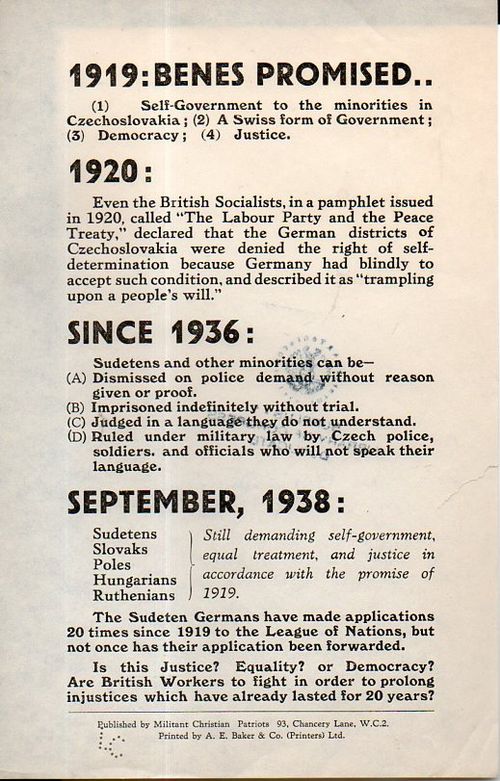
Look Out! (a WARNING ABOUT PROPAGANDA) 5X3". Common Sense Talk, 44C. Published by Men of America, 1939. 6pp. Striking design! And a scarce little bugger! $25
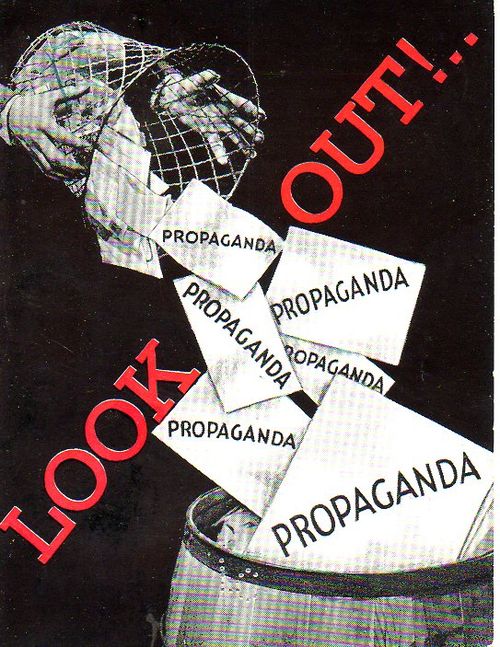
The Rules of Atrocity Propaganda. Printed ca. 1938/1939 at the Falken-Press, Hamburg. 2pp, 11x8 inches. These are original negative photographs of the front and back of the original two-page publication. This was part of a large collection from the Library of Congress, sent to the library in 1946, "source unknown". This is in fine condition, and rare. WorldCat/OCLC locates no copies of this work--at least as a stand-alone title. $195.
As a small cog in the machinery of the Nazi Big Lie, this short sheet (supposedly written by a " Theodore Kesselmeier"1), outlines a campaign of British anti-Nazi psychological warfare, and was written around 1938/9. It is written in a book review format whose aim was the 1938 publication by Sidney Rogerson2, Propaganda in the Next War, which was an alert (described as "brilliant" by John A. Pollard in The Public Opinion Quarterly for Autumn 1945) to the British government to establish central coordinating offices for information and communication for what the author felt to be the impending war with Germany. In many ways Rogerson was responding to an enormous flood of information coming out of Germany about its own impending future, from the election and seizure-of-power by Adolf Hitler, to books like Ewald Barnse Raum und Volk im Welkriege (translated into Germany Prepares for War) of 1933, and on and on, a growing high tide that was without end. (Even from the most base popular study of Germany's desires, for example, looking at every issue of the Illustriete Zeitung (Leipzig) from 1933 to 1939 as I have done, it is overwhelmingly obvious that Germany was preparing for the next war. The case is made constantly and boldly in the magazine, which served in a way as Germany's version of LIFE magazine.)
But the "reviewer" finds the Rogerson work insulting and militaristic, hateful; an attack upon Germany. He/they write(s) that the book is an offense, and part of an effort of "the cold-blooded and unrestricted manner in which Britain has prepared this latest war against Germany". This part is odd because even at this late date, and given what the knew about the German war aims, Great Britain had done very little about preparing for war even until Munich.
I have a number of these propagandistic pieces that came out of Germany at this time, some of which have been written about on this blog, and it seems no surprise now to see how many of them paint Germany as a victim of the war aims of the countries nearby: Poland and Czechoslovakia were both presented as late as 1938 as having designs on Germany. This is just one of many examples of Nazi propaganda on propaganda, issues of lies within lies to the secret house of even-more-inner lies.
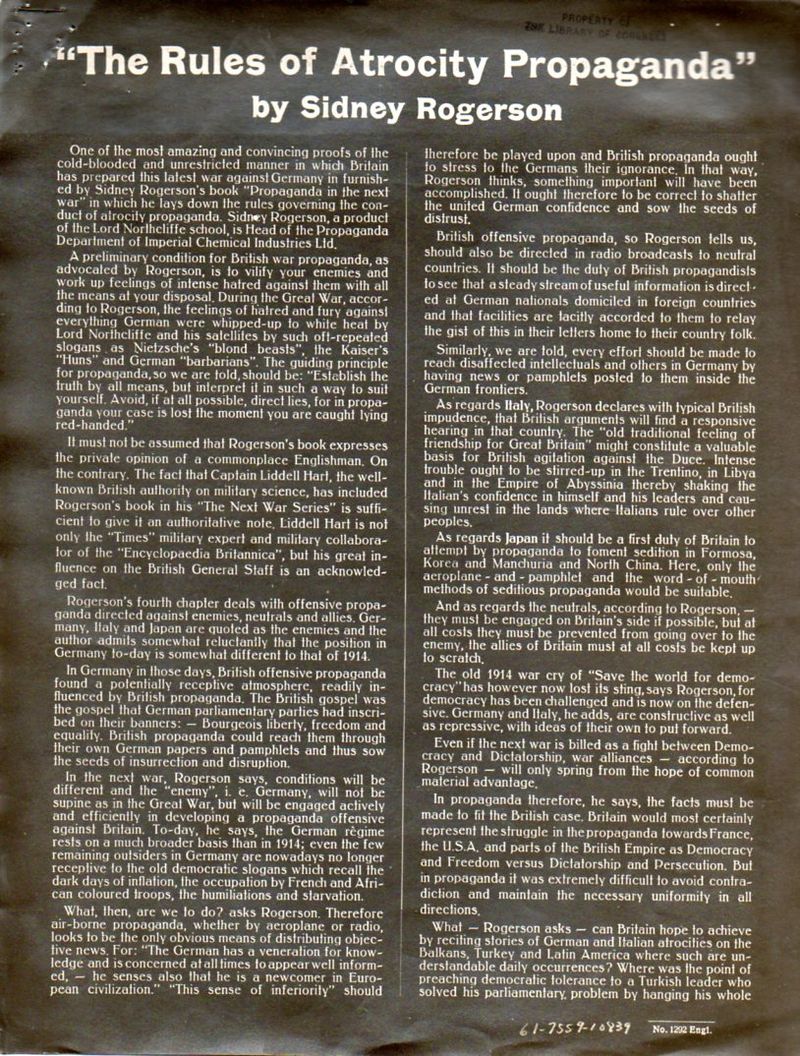
[page 2 is in the "continued reading" section, below.]
Notes:
1. I suspect that "Kesselmeier" was the nom de plume of a section of writers laboring away in the dream factory of the psych-ops part of the Nazi war machinery. It is much easier to produce reports when you have an entire group of people working on the project without need for the benefit of proof--or, for that matter--of truth.
2. Rogerson's entry in Who's Who: “Publicity and Public Relations Consultant and author. Born 22nd of October 1894. Son of the Reverend S. Rogerson. B.A. in Modern History 1916; Served in the European War;
Commissioned in the West Yorkshire Regiment 1916-1919. Demobilised in 1919. 1923-30 was Publicity Manager for the F.B.I (Federation of British Industry); Joined I.C.I (Imperial Chemical Industries) in 1930; Publicity Controller I.C.I Ltd., 1932-1952. Publicity and Public Relations Advisor to the Army Council, War Office, 1952-3-4. Hon. Col. 44th (Home Counties) Infantry Division. Signals Regiment T.A., 1955. Publications: Twelve Days, 1933: Last of the Ebb, 1937: Propaganda in the Next War,1938: Old Enchantment, 1938: Our Bird Book, 1946: Both Sides Of The Road, 1949."
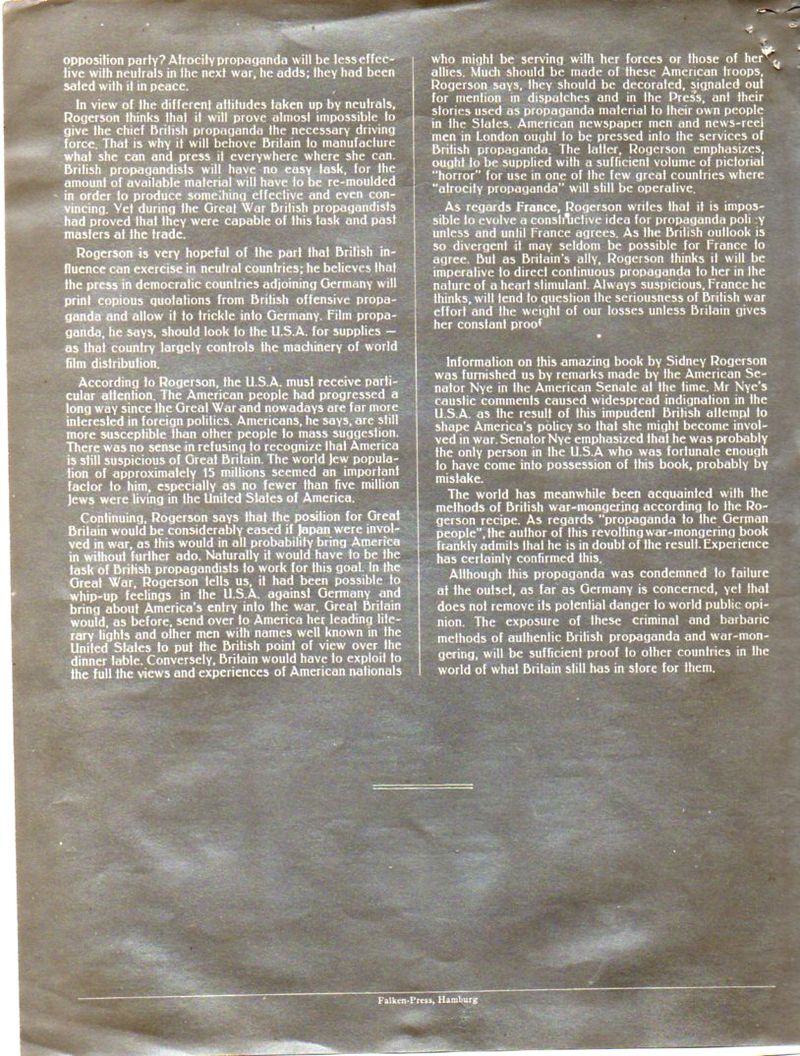
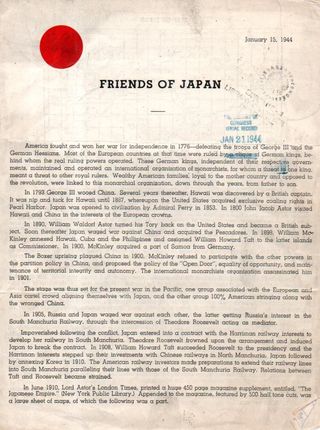
America was obsessed with the Lindbergh Baby for years after the case was decided and the kidnapper executed. Decided or not, the crime captivated many, and people continued to debate the case; and as time progressed, the conspiracy theories regarding the kidnapping seemed to reach out to explanations further and deeper into the Deep and Far.
This four-page pamphlet, published in 1944 by "The Lindbergh Witnesses", a conspiracy group evidently stationed on hapless Staten Island, pushes the barriers a little further, contending that the Japanese Empire and the German Nazis and a secret church and even the Republicans orchestrated the crime.
The "friends" of Japan turn out to be co-conspirators in the case to what becomes the "barbarian Japs" and their Berlin counterparts. This was easy stuff to believe, I guess, what with the world at war, even when most of their evidence seems to be exceptionally flimsy and invisible.
Japanese Propaganda on Their Invasion of China
I have forced myself to contradict myself in order to avoid conforming to my own taste.
--Marcel Duchamp
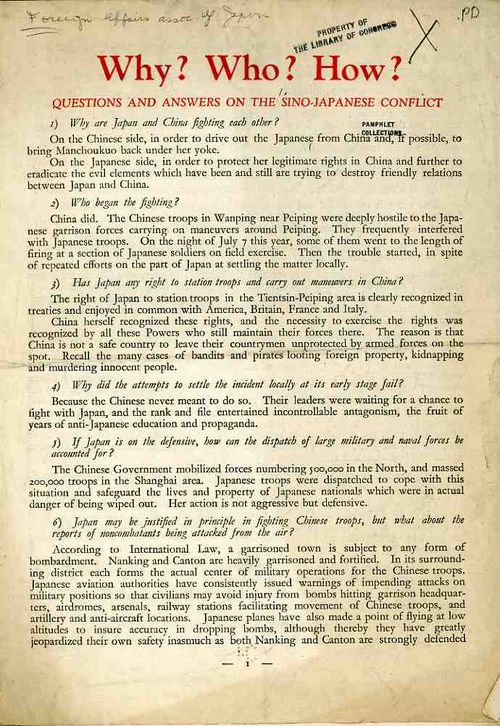
I have a good number of English-language propaganda pieces published by such Hearts and Minds institutions as the Foreign Affairs Association of Japan describing, through the merriest and most defensive eyes, the Japanese viewpoint of exactly what it was that was going on in China between 1931 and 1945. This leaflet, Why? Who? How? Questions and Answers on the Sino-Japanese Conflict (1937), is particularly worth noting because of how quickly and cleverish-cleanly the issue of the war and the fault of fighting was dispatched, and done with such astonishing condescending alacrity, and with such an enormous bodyguards of lies,as to be staggering. I guess this is why the Duchamp quote came to me just now. Old Marcel, the supremely gifted magician, certainly meant to be an enormous, itchy pain in the butt and a source of confusion, an artistic anarchist; the thinking behind the quote served him well, and I think that it can be well-applied here.
- 11x", 4pp, map on rear page. Old fold. Provenance: Library of Congress, Carnegie Institution of Washington. Small "LC" perforation in front and rear page, bottom. Good condition. Scarce. $250
The first issue is in the subtitle: the “Sino-Japanese Conflict” implies that the Chinese were at fault for having the Japanese invade Manchuria back in 1931; secondly, the Chinese started a conflict and not a war.
Actually, the naming of the war there is quite an issue, and an issue still—and an issue at it most base level: the word “war” is not generally used in Japan. It wasn’t used in Japan during the war, or at least until the bombing of Pearl Harbor. Until 1941, the millions of Chinese who were being killed by the Japanese armed forces were the result of a series of ”incidents”. Even though there was a war raging from the beginning in 1931 to the start of total Japanese-Chinese war on 15 July 1937, the stuff that was happening from ’37 to ’42 was still an “incident” except for a period of 1940-ish to Pearl, when the idea of the Holy War (“Seisan”, eight corners of the world under one roof, etc.) was introduced by the Japanese Diet in 1940. After that there was the occasional use of the “Great East Asian Conflict”, with the word “war” not being the part of any Japanese vocabulary.
An interesting phrase that entered into the parlance though, if not “war”, was “Sanko Sakusen”, the “Three Alls”, as in KILL All, LOOT All, BURN All. The Japanese wound up getting part of the Chinese All, eventually killing 20 million people or so in those 15 years. But it wasn’t a war.
This four-page document asks twenty questions, and answers them usually, emphatically, with simplicity, starkness, and with total complicity of innocence on the side of Japan. For example, in discussing the “incident” in Beiging in 1937 which led to the total war between the two countries, asking the reader “why did the attempts to settle the incident locally at its early stage fail?, we are told “Because the Chinese never meant to do so”. Which of course is not the case.
An incredible bit of thinking comes next, when the question “If Japan is on the defensive, how can the dispatch of large military and naval forces be accounted for?” Indeed! Its hard to explain the invasion of another country as a purely defensive action. (We have seen this rather recently ourselves, the fictionalized account of terror-sponsorship in Iraq being about the only fuel necessary for a full-fledged defensive invasion and 2000-day long war.) But the answer in 1937 was the Chinese defensive maneuver of massing troops for an impending invasion of China by Japan was then threatening Japanese interests in China, thus necessitating a defensive invasion of China which was mobilizing to defend itself from a Japanese offensive, which wouldn’t have come if the Chinese hadn’t adopted a defensive posture. Basically, to paraphrase the immortal Mayor-for-Life of Washington, D.C, Marion S. Barry, “basically, the man dead”. (This was Barry’s response to reporters who were clamoring to find out what exactly had happened to a crazy man who climbed into a step van in a Buck Rogers suit and threatened to blow up the Washington Monument with a bucket of pee, an old rifle, and spray paint and then was shot about 200 times by cops of every shape and description. True story.)
We further find out that the attacks on the schools and hospitals in China were carried out, somehow, by Chinese troops; that a Chinese fishing fleet that was attacked and pulverized by Japanese submarines really wasn’t, and that they just disappeared; that Japan was protecting the rights of third party powers by “removing” Chinese troops occupying foreign-owned properties; that the Japanese fight against the “Sovietization” of China would “protect” foreign democracies, and so on. The questions hardly matter, as the answers are all sort of the same. Japan would “reach a settlement” (the word “peace” is not used anywhere here) however, if China “realized the error if her ways”.
Word do control mental images, and the further you get away from the situation described the more powerful the words become. Somehow the Korean Conflict seems less so than a war because it wasn't "legally" so; it was a "police action". And the Japan-China War isn't a "war" in name in most Japanese histories of the period. I think you can dissolve things with loose undefined language to such a point that the thing itself no longer exists; the only stuff that survives are the words used to hide it.
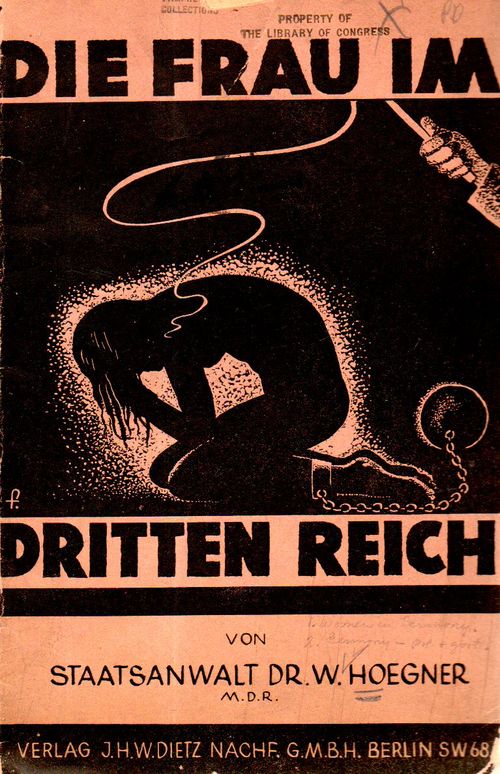
HOEGNER, Dr. W. Die Frau im Dritten Reich. Published by the Verlag J.H.W. Dietz, Berlin. 8x5", 16pp. (Not to be confused with a similarly-titled of the same pagination and year though by Marie Blum.) Fair condition (printed on a poor paper stock that is browning and becoming fragile). Provenance: Library of Congress. WorldCat/OCLC locates 15 copies, though the majority are overseas. $200
Wilhelm Hoegner was an early and influential opponent of Adolf Hitler and the NSDAP--a very early opponent, having been involved in the investigation of Hitler's Beer Hall Putsch in 1923. He maintained his strong opposition as a member of the Reichstag from 1930-1933; after the elections and after Hitler consolidated his power in 1933, Hoegner's position became "untenable" in Germany and he left for Austria, and by 1934 he was situated as a journalist in Switzerland. He played a prominent role in German postwar politics, and died in 1980.
Hoegner wrote Die Frau im Dritten Reich in 1931 as a warning to all about the totalitarian possibilities of the Nazis, and in particular of the tyranny against women--the result is pretty much evident on the very striking cover of his pamphlet. Amongst everything else, Nazis were hardly feminists towards German women--as a matter of fact females were seen in only the very most traditional roles of mother/housewife, and that's about it. Any freedom that women had acheived beyond those roles during the Weimar years were gone.


